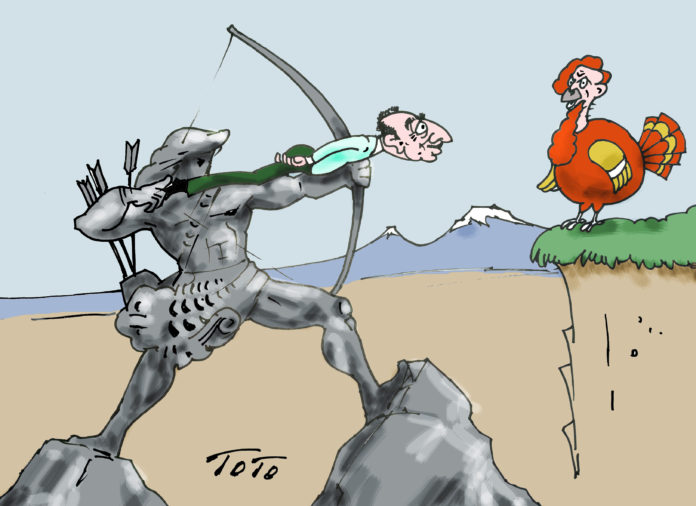It has been very obvious to even the untrained observer what Presidents Recep Tayyip Erdogan and Ilham Aliyev were planning in the Caucasus by holding their extensive military exercises in July and August in mainland Azerbaijan and the Nakhichevan exclave by moving state-of-the-art military hardware to the theater. The action was certainly better documented by military observers and planners in the region.
In addition, Aliyev’s vitriolic attacks on Armenia and Erdogan’s criticism from the United Nations’ stage that Armenia was a destabilizing factor in the Caucasus were the veneer of war preparations that were in the offing.
As war broke out on September 27, Turkey and Azerbaijan accused Armenia of starting the conflict. However, in these days of technological warfare, the major powers, through their satellites, have been constantly monitoring the hot spots around the globe. Thus, the truth is not hard to find.
Writing in Al-Monitor, Amberin Zaman stated: “The emerging consensus is that Azerbaijan most likely instigated the attack after receiving assurances of military support from Turkey.”
Laurence Broers, Caucasus program director at the London-based think tank Chatham House, added that “an intentional but limited aims operation on the part of Azerbaijan aimed at recovering territories [and] consolidating [a] more advantageous new ceasefire, packaged as a military win.”
For his part, President Erdogan himself confided that since the Organization for Security and Cooperation in Europe (OSCE) Minsk Group of mediators, led by Russia, France and the United States, had failed to resolve the conflict for more than 30 years, Azerbaijan “had to take matters into its own hands, whether it likes it or not.”








